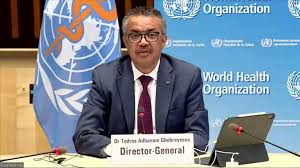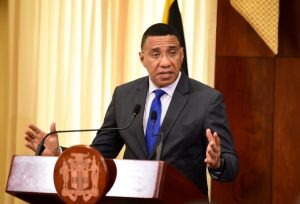World Health Organization (WHO) Director-General Dr Tedro Ghebreyesus on Wednesday (August 14) declared that the upsurge of mpox in the Democratic Republic of the Congo (DRC) and a growing number of cases in African countries constitutes a public health emergency of international concern (PHEIC) under the International Health Regulations (2005).
Ghebreyesus’ declaration came on the advice of an IHR Emergency Committee of independent experts who met earlier in the day to review data presented by experts from WHO and affected countries.
“The emergence of a new clade of mpox, its rapid spread in eastern DRC, and the reporting of cases in several neighbouring countries are very worrying. On top of outbreaks of other mpox clades in DRC and other countries in Africa, it’s clear that a coordinated international response is needed to stop these outbreaks and save lives,” said Ghebreyesus in making the declaration.
According to WHO, two vaccines currently in use for mpox are recommended by the organization’s Strategic Advisory Group of Experts on Immunization as well as by individual countries including Nigeria and the DRC.
Last week, Ghebreyesus triggered the process for Emergency Use Listing for mpox vaccines, which will accelerate vaccine access for lower-income countries which have not yet issued their own national regulatory approval.
The WHO is said to be working with countries and vaccine manufacturers on potential vaccine donations to facilitate equitable access to vaccines, therapeutics, diagnostics and other tools.
“Significant efforts are already underway in close collaboration with communities and governments, with our country teams working on the frontlines to help reinforce measures to curb mpox. With the growing spread of the virus, we’re scaling up further through coordinated international action to support countries bring the outbreaks to an end,”said WHO Regional Director for Africa Dr Matshidiso Moeti .
Committee Chair Professor Dimie Ogoina further added that the current upsurge of mpox in parts of Africa, along with the spread of a new sexually transmissible strain of the monkeypox virus, is an emergency, not only for Africa, but for the entire globe.
Ghebreyesus is expected to share the report of the Committee’s meeting and issue temporary recommendations to countries.
Caused by an Orthopoxvirus, mpox was first detected in humans in 1970, in the DRC. The disease is considered endemic to countries in central and west Africa.
Mpox has been reported in the DRC for more than a decade, and the number of cases reported each year has increased steadily over that period. Last year, reported cases increased significantly, and already the number of cases reported so far this year has exceeded last year’s total, with more than 15 600 cases and 537 deaths.
The emergence last year and rapid spread of a new virus strain in DRC, clade 1b, which appears spread mainly through sexual networks.
In the past month, over 100 laboratory-confirmed cases of clade 1b have been reported in four countries neighbouring the DRC that have not reported mpox before: Burundi, Kenya, Rwanda and Uganda.
Experts believe the true number of cases to be higher as a large proportion of clinically compatible cases have not been tested.












